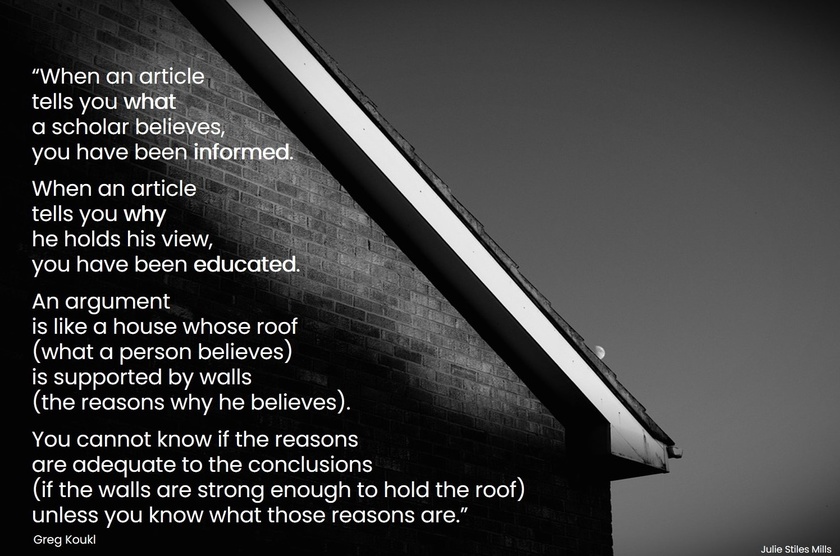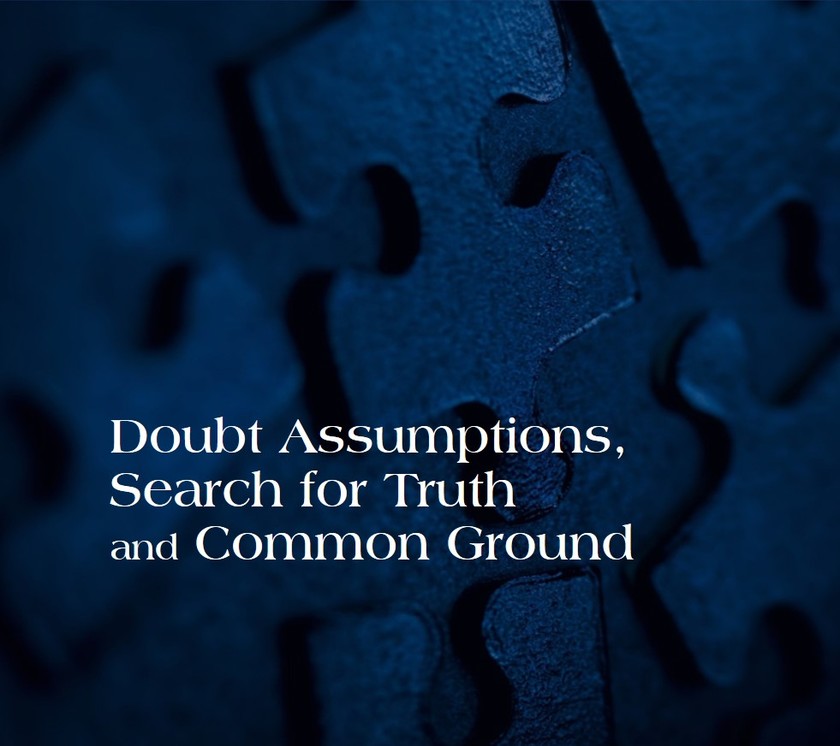So. much. research. today. As I take in and process all this information, I find myself thinking of something I read yesterday: "When an article tells you what a scholar believes, you have been informed. When an article tells you why he holds his view, you have been educated. Here is why this distinction is so important...an argument is like a house whose roof (what a person believes) is supported by walls (the reasons why he believes). You cannot know if the reasons are adequate to the conclusions—if the walls are strong enough to hold the roof—unless you know what those reasons are. If you know the reasons, you can assess their strength. Without them, you have no way of knowing if the conclusions are sound.
Popular articles always inform, but they do not always educate. As a result, you can’t evaluate a scholar’s conclusion. You simply have to take his word for it. But scholars can be wrong and often are. Their reasoning can be weak, their “facts” can be mistaken, and their biases can distort their judgment...
Regardless of a scholar’s credentials, don’t settle for opinions. Instead always ask for reasons...if an authority is in possession of special information that guides his counsel, then he should be able to point to that evidence to convince us he’s on the mark."
Greg Koukl

Facebook allows kittens, but not info on their competitors. I can share other posts from my blog, but not this one, even after using their "linter" to fix the problem.
(I added the word kittens to my facebook post on purpose. and the filename of the attached image has the word kitten in it.)
kitten. kittens. #kittensoffacebook
kitten.

Mom is mom, no matter how old you are. 😂🤣
https://twitter.com/Rickfromtheteam/status/1321810819995324418














